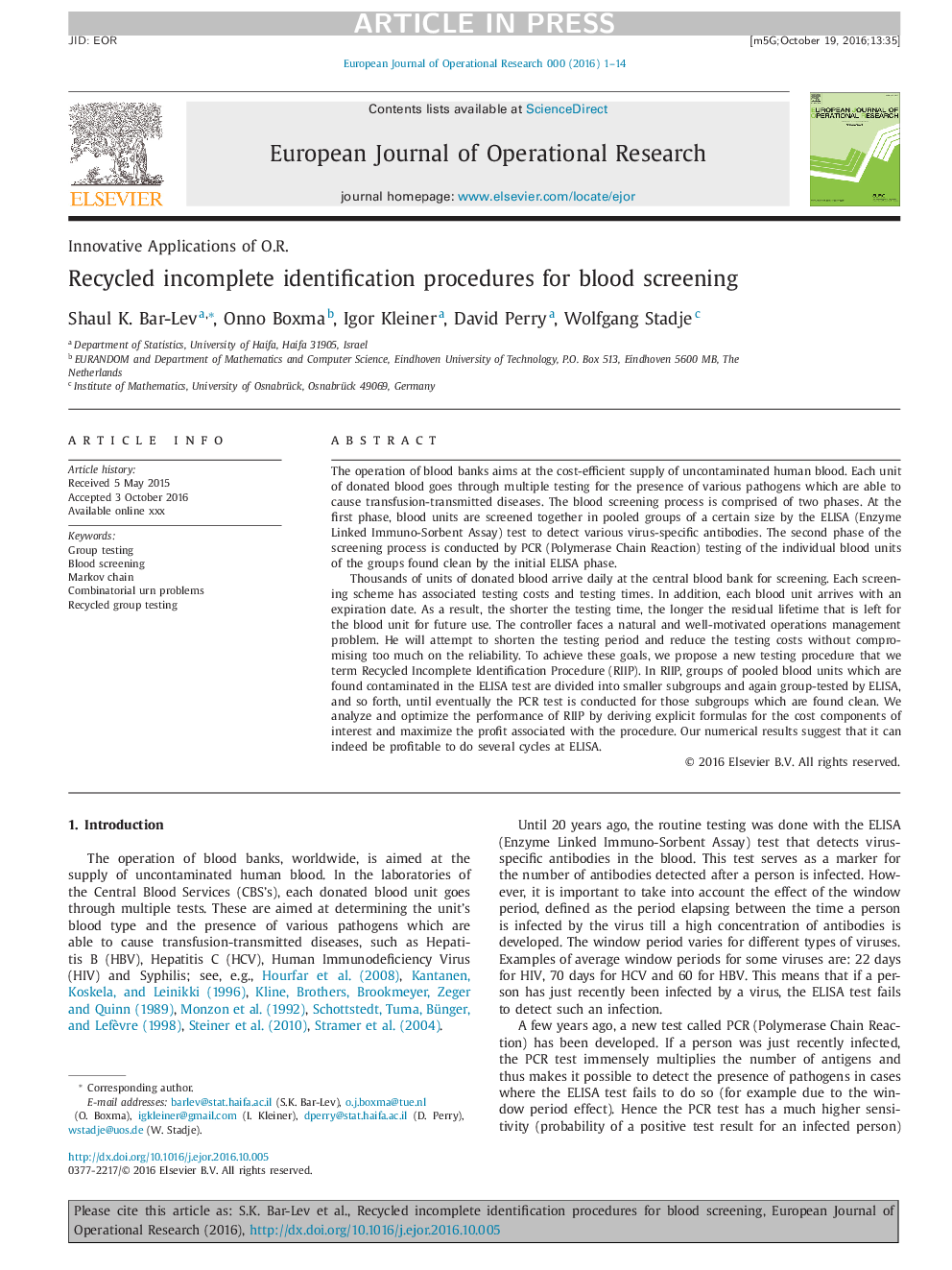| Article ID | Journal | Published Year | Pages | File Type |
|---|---|---|---|---|
| 4959935 | European Journal of Operational Research | 2017 | 14 Pages |
Abstract
Thousands of units of donated blood arrive daily at the central blood bank for screening. Each screening scheme has associated testing costs and testing times. In addition, each blood unit arrives with an expiration date. As a result, the shorter the testing time, the longer the residual lifetime that is left for the blood unit for future use. The controller faces a natural and well-motivated operations management problem. He will attempt to shorten the testing period and reduce the testing costs without compromising too much on the reliability. To achieve these goals, we propose a new testing procedure that we term Recycled Incomplete Identification Procedure (RIIP). In RIIP, groups of pooled blood units which are found contaminated in the ELISA test are divided into smaller subgroups and again group-tested by ELISA, and so forth, until eventually the PCR test is conducted for those subgroups which are found clean. We analyze and optimize the performance of RIIP by deriving explicit formulas for the cost components of interest and maximize the profit associated with the procedure. Our numerical results suggest that it can indeed be profitable to do several cycles at ELISA.
Related Topics
Physical Sciences and Engineering
Computer Science
Computer Science (General)
Authors
Shaul K. Bar-Lev, Onno Boxma, Igor Kleiner, David Perry, Wolfgang Stadje,
